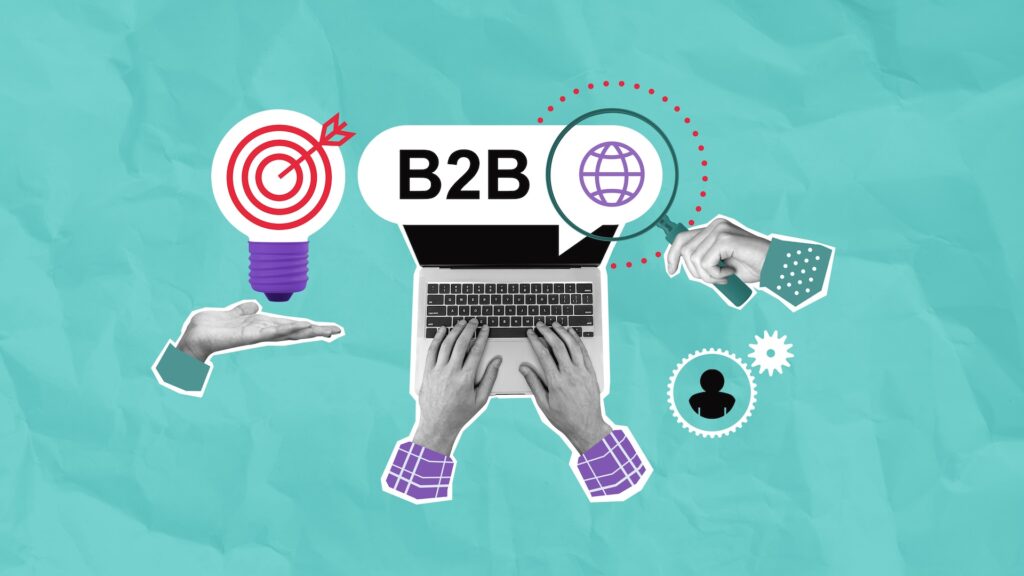
B2B buyers aren’t just searching the old way anymore.
Google’s AI Overviews, OpenAI’s ChatGPT, Perplexity, and Copilot Search in Bing have changed how content is surfaced.
From ranking traditional blue links, they are now generating direct, synthesized answers.
This evolution challenges long-held assumptions in B2B SEO and content strategy.
In the next gen search era, where fewer users click and more rely on summarized results, B2B marketers must adapt how they:
- Build visibility.
- Measure performance.
- Collaborate across channels.
The rise of AI Overviews: A new discovery paradigm
AI-generated search responses are increasingly becoming the first impression of your brand.
Up to 72% of B2B buyers encounter AI Overviews during their research, a recent TrustRadius study found.
While early fears of zero-click searches linger, the same study revealed a surprising insight – 90% of users still click through to cited sources to verify information.
This suggests that, in B2B contexts where trust and due diligence matter, brands still have an opportunity to capture attention – as long as they’re referenced by AI in the first place.
Yet traditional SEO metrics don’t tell the full story.
Measuring the impact of AI-generated visibility remains a challenge.
Google Search Console offers limited transparency into AI Overview placements, prompting teams to turn to proxy indicators, such as:
- Branded search volume.
- Long-tail keyword tracking.
- Impression share.
- Lead quality metrics.
These alternatives help fill in the gaps where direct click data falls short.
Alternatives like Profound, Brandlight, and Evertune have stepped in to track how answer engines surface and rank your brand against competitors.
Dig deeper: 3 SEO priorities to win organic traffic in 2025
Content optimization for AI: Structure over clickbait
AI models prioritize content that is clear, structured, and aligned with natural language queries.
This means your old SEO playbook needs an update.
Instead of optimizing solely for SERP position, you must now ensure that content is:
- Logically formatted and easy to extract.
- Enhanced with schema markup and FAQ blocks.
- Written in a conversational tone that matches buyer queries.
B2B content should focus less on volume and more on clarity, depth, and authority.
If your page is cleanly structured and directly answers niche or technical questions, it stands a much better chance of being cited in AI-generated summaries.
Besides, isn’t this what we were supposed to be doing anyway?
Dig deeper: Optimizing LLMs for B2B SEO – An overview
Beyond Google: Building visibility across trusted channels
AI answer engines don’t pull content from just your website – they tap into a broad range of public sources.
Reddit, Quora, LinkedIn, and YouTube are increasingly showing up in AI responses due to their relevance and human-generated content.
Each platform offers a unique path to visibility:
- Reddit and Quora: Strong for technical and long-tail queries.
- LinkedIn: Prioritizes professional thought leadership and B2B authority.
- YouTube: Favored for structured, explainer-style video content.
Instead of chasing reach, focus on relevance.
Identify high-intent topics in these forums and align your strategy accordingly. Use these channels to seed expert insights, join active discussions, and uncover emerging questions AI is likely to surface.
B2Bs have long struggled with how much content to gate. But the reality is that AI engines can’t access information hidden behind forms. That’s why expanding to other channels and prioritizing buyer education should take precedence over purely chasing MQLs.
Dig deeper: SEO beyond Google – Building your brand on Reddit, Quora, TikTok and more
From search to strategy: The cross-channel collaboration imperative
B2B SEO no longer operates in a silo. AI models draw from all corners of the web.
PR coverage, social commentary, community posts, and thought leadership pieces all feed into the AI’s understanding of your brand.
This makes cross-functional collaboration essential.
PR, content, and SEO teams should work in tandem to build authority by:
- Getting cited in industry publications.
- Being mentioned in credible forums.
- Contributing to trusted third-party platforms
These increase the likelihood of appearing in AI-generated responses.
Ungating more high-quality content – without giving away the farm – makes your brand more accessible to AI systems that can’t crawl behind lead forms.
Striking the right balance between lead generation and open-access authority is now part of modern SEO strategy.
Dig deeper: Your 2025 playbook for AI-powered cross-channel brand visibility
Human + AI: A smarter content workflow
While AI tools can assist in drafting, outlining, and researching content, they are not a substitute for expert-driven insights.
Google’s E-E-A-T (experience, expertise, authoritativeness, and trustworthiness) framework still rules the evaluation of content quality.
To stand out in AI-powered search, your content must offer something original.
As one commentator put it, “If nobody took the time to write this, why should anybody take the time to read it?”
Use AI for speed, but keep the human touch for strategy, differentiation, and trust-building.
AI search isn’t the future – it’s the now
AI-powered search experiences are already transforming how B2B buyers find information and evaluate vendors.
The shift isn’t just about tools – it’s about behavior, expectations, and trust.
Even the biggest player, Google, centered its Google Marketing Live event around AI and, for the first time, discussed a unified approach to paid search and SEO.
Success in this new landscape means rethinking how we define visibility.
It’s no longer just about top-ranking links.
It’s about earning citations, building trust, and being present in the right places – whether that’s on your website, a LinkedIn post, or a Reddit thread.
At the intersection of SEO, content, PR, and community engagement lies the future of B2B search strategy.
It’s time to brief the AI agents that now speak for your brand.
Dig deeper: How to get cited by AI – SEO insights from 8,000 AI citations

